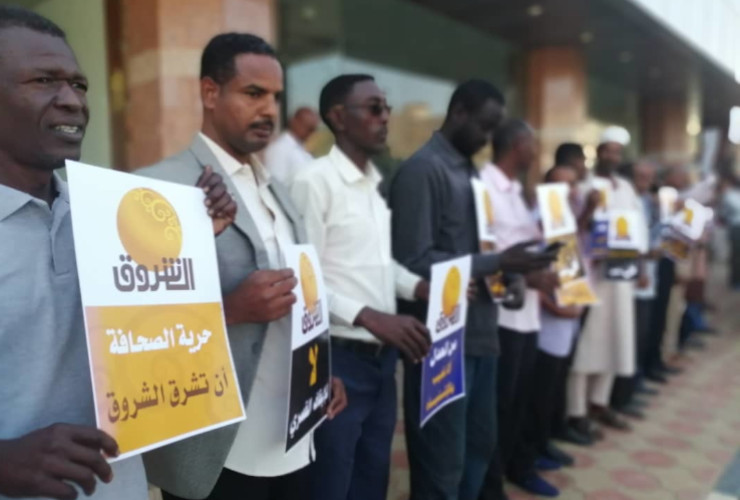The International Press Institute (IPI), a global network of editors, media executives and leading journalists for press freedom, today condemned the shutdown of four media outlets in Sudan.
On January 7, the country’s Sovereign Council ordered two newspapers, Al-Sudani and Al-Rai al-Aam, and two private satellite channels, Al-Shorouk and Taiba TV to shut down their operations.
The Council, which was set up as a transitional government for 39 months in August to replace the regime of ousted former President Omar al-Bashir, said it was suspending the operations of the four media outlets until their accounts were reviewed and their owners identified.
The Council has accused the four outlets of receiving government funding under the former regime. However, it has not provided any evidence to support the allegation, according to the Sudanese Journalist Union.
Waleed Mustafa, secretary of foreign affairs at the Union, told IPI that the decision was issued by the government’s Anti-Corruption Committee, which is chaired by Lt General Yasser Al-Atta, a member of the Sovereign Council.
According to Mustafa, as a result of the government’s decision approximately 1,000 media workers have lost their jobs. Last Sunday, employees from Al-Shorouk TV held a sit-in protest in front of the headquarters of Anti-Corruption Committee to demand that the ban on the channel be lifted. Employees from Al-Sudani newspaper also protested in front of the justice ministry in Khartoum, Mustafa said.
“These closures of media outlets bear a worrying resemblance to the repressive tactics used during the al-Bashir era, and are contrary to assurances given by the new government”, IPI Director of Advocacy Ravi R. Prasad said. “We call on the country’s transitional government to make good on the promises made by the prime minister to uphold press freedom and allow these media outlets to reopen immediately.”
The latest closure is reminiscent of the high-handed approach of the Transitional Military Council towards independent media. In May last year, while the Transitional Military Council was in power, the Al Jazeera bureau in Khartoum was closed and its journalists banned from reporting. In the summer, Sadiq al-Rizaigi, editor of the Al-Sayha newspaper and head of the Sudan Journalists Union, was arrested outside his office by security forces.
The enactment of the Sovereign Council as a path toward full civilian rule had raised hopes for press freedom in the country as the new administration promised to guarantee media freedom. In September 2019, the Sudanese government signed the Global Media Freedom pledge that was announced in London during the Global Media Freedom Conference 2019.
Radio Dabanga reported that Prime Minister Abdallah Hamdouk said no journalists would be repressed or imprisoned. In November Minister of Culture and Information Feisal Mohamed Saleh reiterated this commitment on the occasion of the International Day to End Impunity for Crimes against Journalists.
But the Sudanese Journalist Union told IPI that the situation on the ground contradicted the government’s rosy proclamations.
“The government is increasingly becoming hostile towards the press community, starting with the dissolution of the Sudanese Journalists Union, SJU, which represents about 7,000 journalists, freezing its assets and accounts in banks, and security forces occupying its headquarter in Khartoum since mid-December 2019”, Mustafa said.
In addition, the Sudanese authorities are now trying to freeze the accounts of two Sudanese newspaper editors.
“All this indicates the future of press freedoms in Sudan is very dark”, Mustafa concluded.
